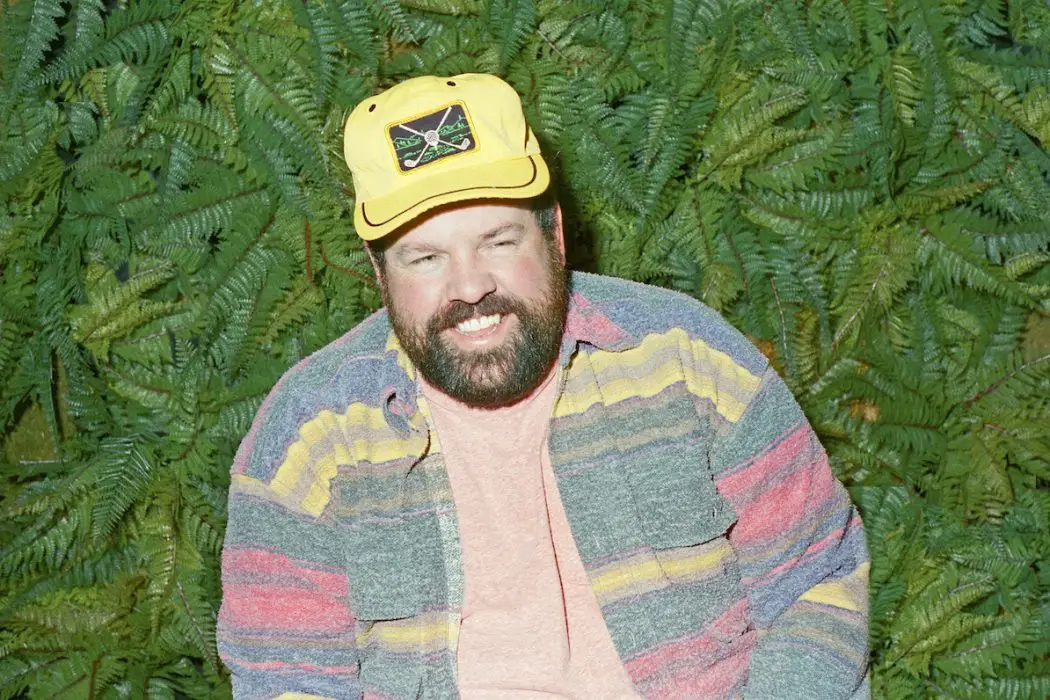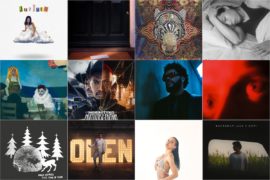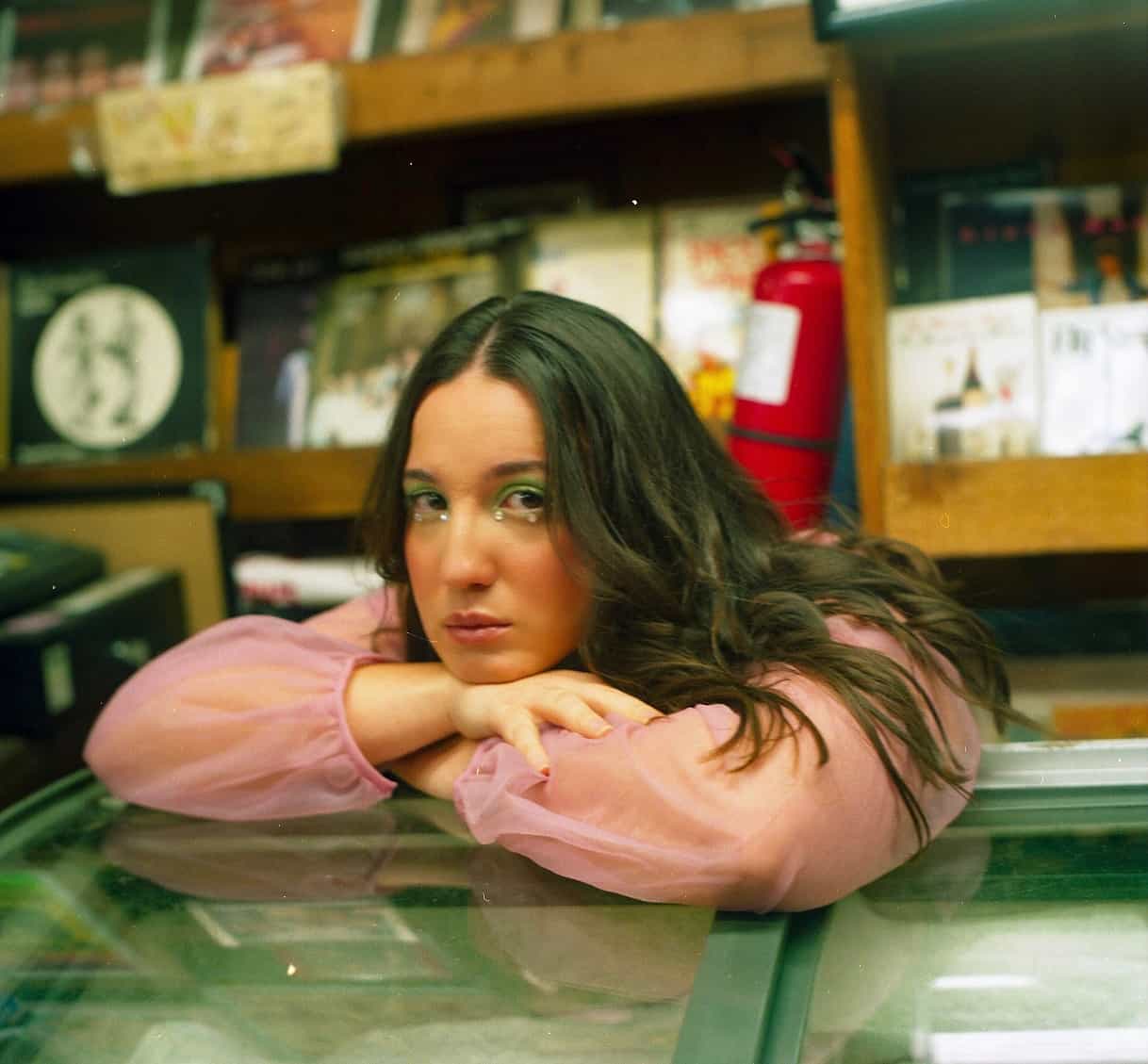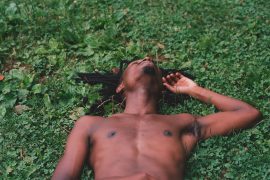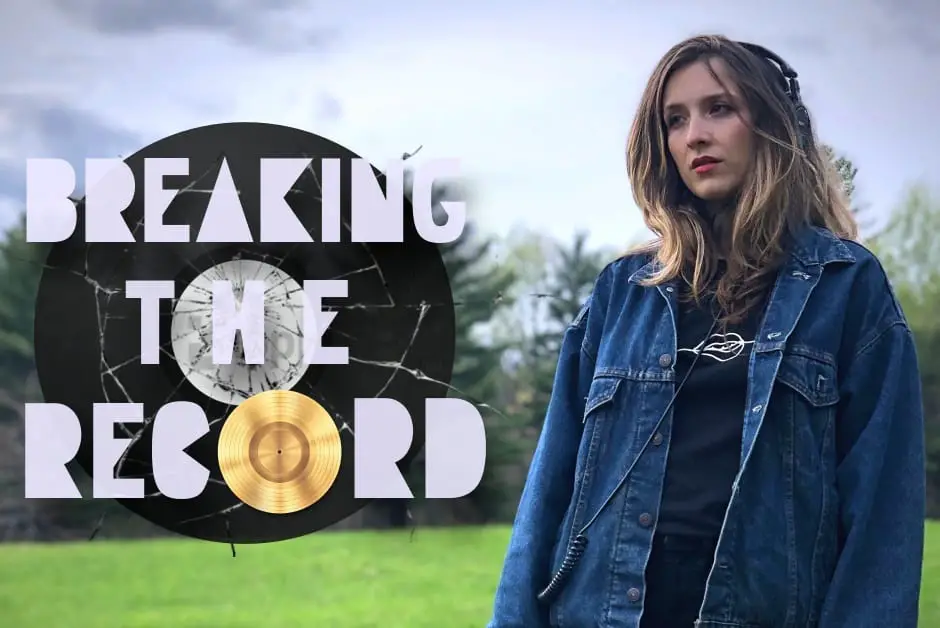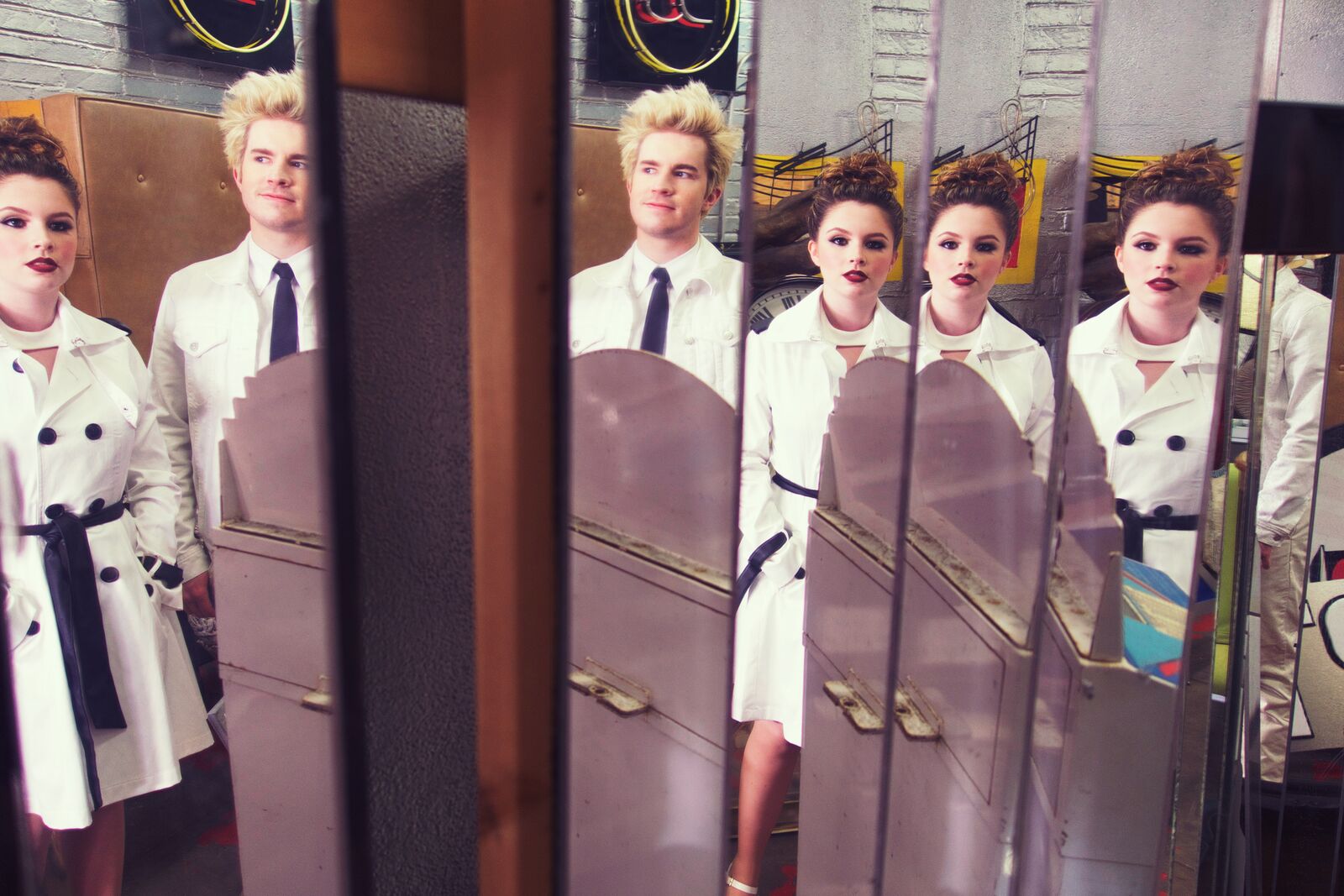A tender tempest, Donovan Woods’ seventh album ‘Without People’ is a breathtakingly beautiful oasis of sweet folk sound and dramatic, heartfelt emotion.
Stream: “Seeing Other People” – Donovan Woods
I wanted this record to feel like an overwhelming amount of small songs that all hit hard. I think it sounds like this year, and I like that.
A tender tempest, Donovan Woods’ seventh studio album is a breathtakingly beautiful oasis of sweet folk sound and dramatic, heartfelt emotion.
It’s a sincere study of humanness and humanity without the frills or eccentricities of modern pop music; unadulterated and honest, Without People is hauntingly vulnerable, humble, intimate, and raw.

I am just a boy I know
Frozen in a picture
What was that smile I made?
I was on a need-to-know basis
And I didn’t need to know that
I didn’t even know it was a man made lake
I remember you so clearly, driving home from parties
People never said shit in those days
I’m laying in the back seat staring,
at the headlights glaring
Moving the opposite way
I am completely safe
All of the trees beside it
Every rock inside it
Somebody’s dad decided where they should go
And when I was a kid, I thought it was the ocean
Now I’m taking on water on a man made lake
– “Man Made Lake,” Donovan Woods
And to think, it’s only been a year and change since Woods’ acclaimed fifth album, Both Ways, took home the 2019 Juno Award for Contemporary Roots Album of the Year. Speaking to Atwood later that year, Woods spoke extensively about the mental and emotional impact of touring – an idea that ultimately inspired his single, “Go to Her.” Woods had been on the verge of a number of exciting tours before the COVID-19 pandemic shuttered his plans, as it did to so many.
“Just like for everyone, it’s been challenging, and has had some silver linings,” Woods says of his 2020 lockdown-imposed pause. “We cancelled some tours that I really wanted to do, but it’s nice to be able to have a routine in my life and to be available to everyone when they need me. I’ve also been able to sit alone and make music more than I normally do. I didn’t realize how much air travel was taking out of me, and I’ve really been enjoying not flying. I think I will try to continue to fly less.”
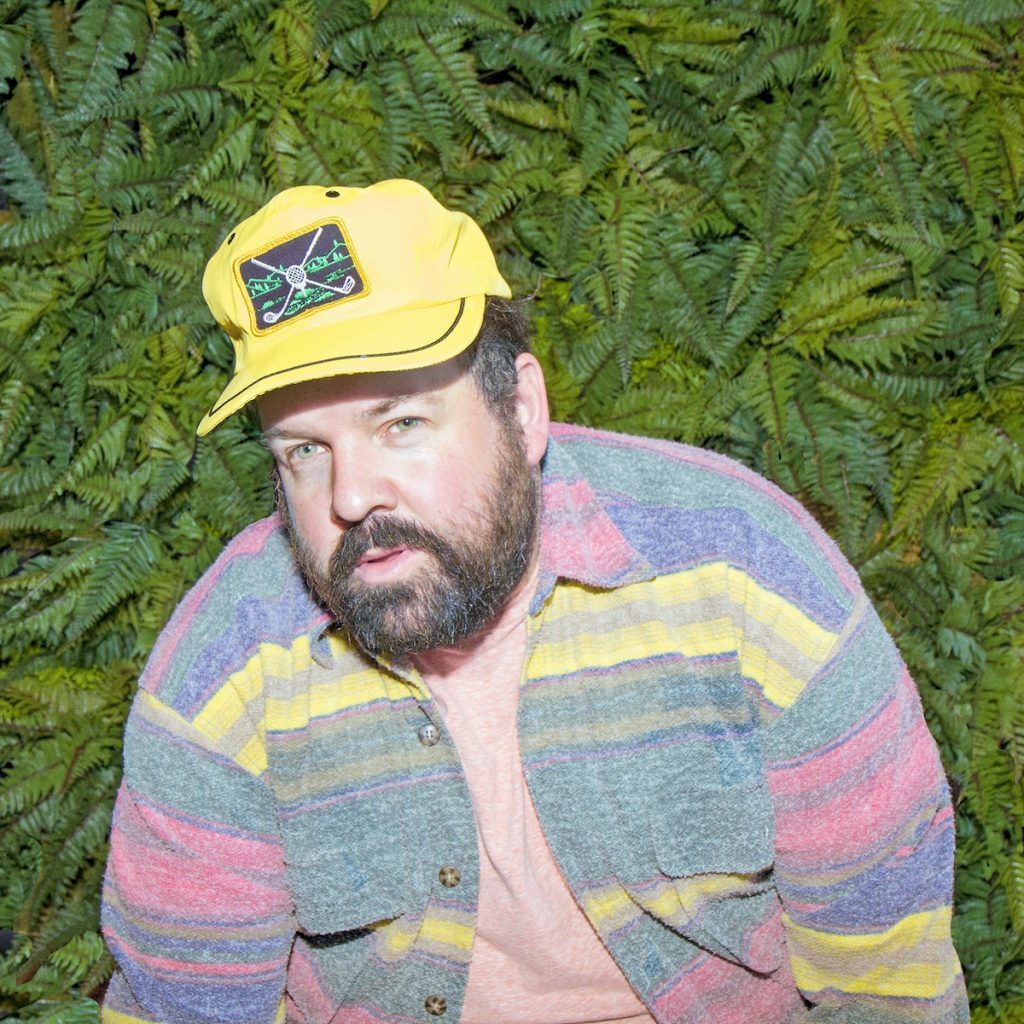
Touring may be paused, but music making is not. Written and recorded both before and during the pandemic, Without People seems to blend the worlds of our past with that of our present stasis. The record stands in stark contrast to its predecessor; speaking to the separations between Both Ways end and Without People, Woods notes a massive distinction between his last record and this new one.
“Listening back to Both Ways now, it sounds quite demonstrative,” he explains. “I was really invested in proving that I could fill up big spaces with my sound, that I belonged on a main stage. I can feel the desperation. Truthfully I’m not drawn to that. My instincts are much smaller. I LIKE to open the show. Even singing full-voiced feels uncomfortable for me. I wanted this record to feel like an overwhelming amount of small songs that all hit hard. I think it sounds like this year, and I like that.”

A big theme across Without People is, notably, separation and isolation – a theme that hits all too close to home, now that so many folks across the globe are sequestered to their homes.
This isn’t a new theme for Woods (his 2016 hit single “Portland, Maine” tackles it, as do various songs throughout his career), but the notion takes on a life of its own on this album.
“I think I’m always writing about isolation in the kind of trapped-inside-our-own-bodies-and-points-of-view type way,” Woods reflects. “It interests me that people are quite literally unknowable. We all have this internal life that no one is truly given full access to. I had the title “Without People” even before the pandemic happened. I guess what I was getting at is this desire to have time alone to create and the truth that the only thing that inspires me is other people. I have no inspiration in isolation. I don’t have any great personal mantra to express that springs from inside my soul or anything. I just like to document the strange and often ruinous tiny things we do to each other under the guise of love.”
I have no inspiration in isolation. I don’t have any great personal mantra to express that springs from inside my soul or anything.
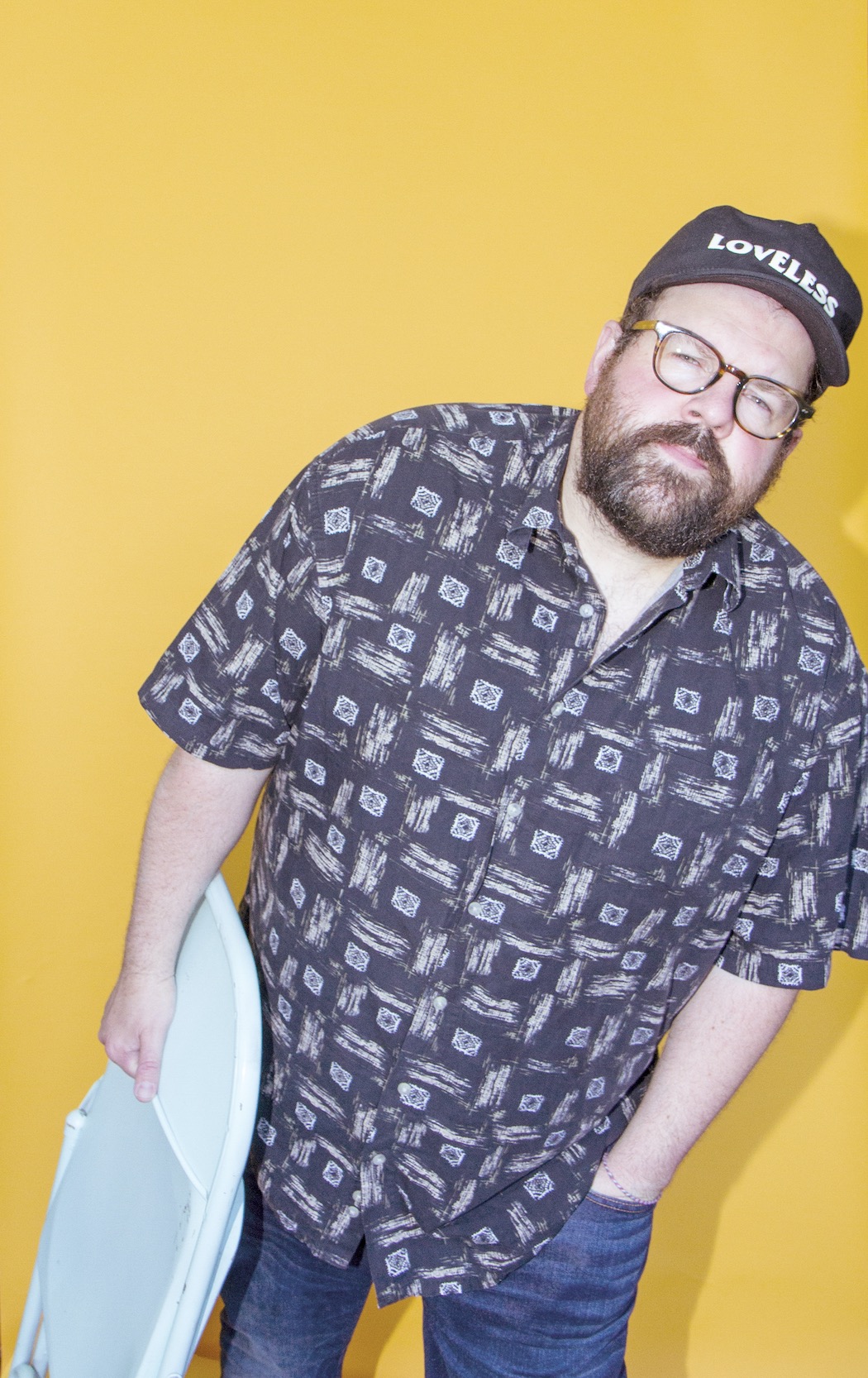
Connection has always been a source of inspiration Woods; “I think I’m always writing about that,” he says. “I’m very interested in people. I think we’re so funny and full of shit.” Nowhere has this been more obvious than in Without People, in which absence has its own strong presence. Human connection’s importance – both for the artist personally, and as a driver in so much of his music – is heavily apparent from the moment the record launches with “Last Time I Saw You,” a song that also sets a somber tone of disconnect and loss. “I don’t know why it’s always bleeding at the edges; why that whole night keeps on tearing at the seams. I guess it might be that this is just a bunch of guesses,” he sings midway through this poignant ballad, going on to plunge the depths of his feelings with a gut-wrenching end:
I’m told that you left early; I can’t speak to that at all
But if you were wearing a jacket, then it must’ve been the fall
Did we smile at each other, for a moment through the crowd
Well, even if we didn’t, hell, that’s nice to think about
Last time I saw you, it was a year or more ago
And I would’ve made a bigger deal, but how was I to know
I don’t remember every detail, but I keep on trying to
Because last time I saw you, was the last time I saw you
So begins a record that leans into discomfort and heartache, embracing them as familiar friends – from the tearjerker pain of “Seeing Other People,” to the immersive introspection of “Man Made Lake,” to the unencumbered revelation of “God Forbid.” Woods cites the song “Mad Made Lake” as one of his favorites, from a lyrical perspective.
“There’s something about the middle line of “Man Made Lake” that I love, so I put it right at the centre of the record, “I am just a boy I know, frozen in a picture, what was that smile I made?” I could unpack what I think about it, but it would ruin it.”
That “discomfort” also translates into new musical territories. Whereas the album’s opening tracks are of the more muted, expressive guitar-and-vocals singer/songwriter variety many have come to expect from Woods over the past ten years, Without People is far from a one-trick pony. The deeper one dives into this album , the more it opens up musically – a quality that’s at least in part due to collaborations with other artists. He wrote album single “Grew Apart” with Logan Wall and Travis Wood; meanwhile, “She Waits for Me to Come Back Down” features Nashville’s Katie Pruitt, and “Lonely People” features London’s Rhys Lewis.
“Katie Pruitt and I wrote [“She Waits for Me to Come Back Down”] quickly in a meeting that we had in Nashville a few years ago,” Woods recalls. “She was considering coming on tour with me in Canada so we hung out. She had that idea, She Waits For Me To Come Back Down, which struck me immediately. We would sing that song in the encore on tour, in the fashion that it appears on the record: Two-part harmony the whole way through. That form appeals to me. Dolly Parton and Porter Wagoner, etc. I love collaboration. It can be uncomfortable but it almost always results in strengthening the work. Also I think involving as many artists as possible in a record called Without People spoke directly to the conflict in the title.”
Woods doesn’t have any single takeaway from his seventh album; rather, he’s coming away from it with a confident sense of self-knowing and reinvigorated resolve. “It’s really just reinforced what I knew already: It’s a job about ideas. You can be as good at guitar as you like, you need to have ideas. Read, listen and pay attention, pay attention, pay attention. If you’re not inspired by something, you’ve got nothing.”
Woods is right when he says that Without People sounds like 2020: Its songs, from the nostalgia-fueled “We Used To,” to the hard-refresh “Clean Slate,” speak to a moment in history (and in all of our individual lives) that invites pause, reflection, connection, and change.
“In the middle of a pandemic as the truth of our environmental devastation sinks in, in the thick of protests reshaping our thoughts on policing and crystallizing the reality of white supremacy at work in all corners of our society, it feels silly to write about relationships,” Woods says. “But, what I discover time and time again is that my brain wants to fixate on and examine small moments that may have seemed inconsequential but have ended up shaping my sense of self. So, if we are coming to the end of something (and it feels like we are), I can say that I tried my hardest to write truthfully about the people I’ve loved and the things I did wrong, and add my little verse to the story of what it feels like to be a person, longing for connection, and then longing for solitude, and then longing for connection. All in all, I think the record sounds like the times it was made in: turbulent and lonesome.”
I love records that become useful for me, ones that I can’t wait to put on when I leave work, or when I’m on a walk. I hope it’s practically useful for people and that it makes them feel heard and seen.
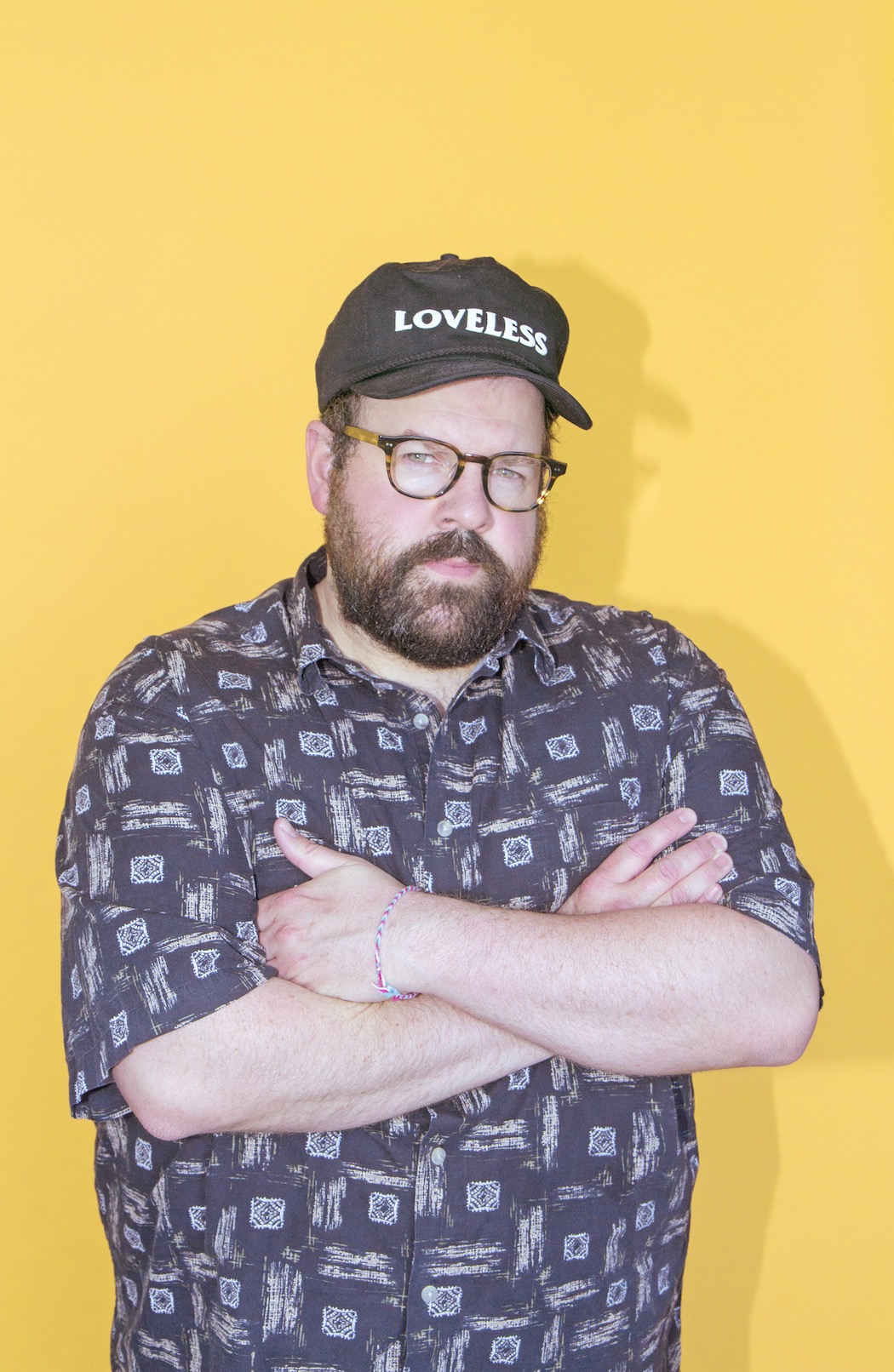
Without People is a special musical and emotional companion for those of us in our own lockdown or quarantined states.
It’s a source of both grief and love – a record that communicates light and verve, even while traipsing through caverns of solemnity and darkness. Donovan Woods’ music and lyrics invite listeners of all ages and walks of life to reconsider their relationship with loved ones, as well as the greater world that surrounds. By the time songs like “High Season” and closer “Whatever Keeps You Going” herald the journey’s end, we might come away with a spirited sense of fortitude and our own well-won resolve; or perhaps we’ll be ready to press repeat, and play it all over again.
No matter how you listen to Without People, Donovan Woods is sure to engage, inspire, and move – just like he always does. If you’re looking for a cathartic experience, you’ve come to the right place. Listen to the full record via our below stream, and peek inside Donovan Woods’ Without People with Atwood Magazine as the singer/songwriter goes track-by-track through the music and lyrics of his seventh LP!
Without People is out now via Woods’ own Meant Well Records.
— —
:: stream/purchase Without People here ::
Stream: ‘Without People’ – Donovan Woods
:: Inside Without People ::
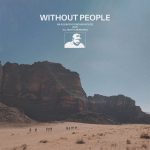
— —
“Without People”
(Donovan Woods, Drew Jurecka)
I felt very early on that the record should start with a string quartet piece. I thought having a nice warm entrance would serve the record well. Drew Jurecka wrote and arranged this piece to lead directly into “Last Time I Saw You”. The crowd noise was recorded in Toronto’s Kensington Market, before the pandemic, and at the time it made us feel very wistful and strange to hear it. A big part of this album is about this lifelong longing many of us have to be left alone with our own thoughts and the strange connection that longing has to our worst fears of abandonment or losing someone we love.
“The Last Time I Saw You”
(Woods, Jake Etheridge)
This was the first song I knew would be on the record. I had this title for a while and I knew I wanted the song to be an attempt to recall the specifics of a final encounter. I brought the idea to songwriter Jake Etheridge on a torrentially rainy day in Nashville and we wrote the song quickly. We were done in about an hour. The feeling of this song began to inform the whole album in some ways. I was hoping to keep the unreliability of our own memories present in all the lyrics on the album. This song feels like a dream to me, in the way that I really like. My favourite TV episodes are always the ones where the main character is in a coma and the whole thing is a dream. The story here happened to me, pretty much word for word.
“Seeing Other People”
(Woods, Dustin Christensen)
This was the last song written for the record. Dustin Christensen and I worked on this one in Nashville. I knew I wanted it to start with the chorus. The song is pretty clear. Probably a lot of us have dated someone who seemed more desirable than us. I think it’s about that first experience of realizing the person you’re with operates at an energy you can’t live beside. You’re in love with them because everyone is in love with them. My girlfriend in University told me that she was attracted to men’s eyes and the way their arms look while leaning on tables, so that’s what I’m talking about in the second verse. I remember that when she told me that, it devastated me, but I can’t remember exactly why. I have a specific night from my life that I believe this song is about, but, again, I can’t figure out why I think that. I was imagining that specific night even while we wrote it. Nothing like any of the things described in the song happened that night, there seems to be no connection whatsoever, but the feeling remains and that’s why I figured it was a good song.
“We Used To”
(Woods)
I wrote this one on the road opening up for Ruston Kelly. I had been fooling around for a while with the chords that are in this. ‘Thirds’, I think they’re called, I don’t know really. I had the lyric “we just wanna feel like we used to”, because I saw it written on a garage door in an alleyway in Los Angeles. And I think that feeling is probably true of everyone, always. I wrote the chorus in a hotel room in Iowa, and it was very fun to sing and play immediately, so it stuck around. I wrote the verse in an alley way in St. Louis after the only show on that tour that my whole set got talked through. It was my Birthday. I was thinking about waking up in hotel rooms, seeing them in the light of day for the first time, and then immediately leaving. I guess it’s about chasing something that you’re never gonna get, but you keep going because what else is there to do? Longing for lost love feels the same as wanting to be famous in that you’re always worried about aging, and even if you get it, you won’t like it as much as you thought you would.
“She Waits For Me To Come Back Down (ft. Katie Pruitt)”
(Woods, Katie Pruitt)
Katie Pruitt and I wrote this together and it was her idea — a love song for her girlfriend, I think. I love the mood in this song. It’s lovely and sweet, but steeped in a bit of worry that we may be hearing about a slightly unhealthy relationship. But aren’t all the good ones? A friend of mine told me after hearing it that, “I’m a mess and she’s a masterpiece,” is a line that could only be written by a woman about a woman. I don’t know if that’s true, but luckily that is the case here.
“Clean Slate”
(Woods, Jeremy Spillman, Tucker Beathard)
This is a love song about falling in love and how it makes you feel like you’re a new person. But slowly you realize you’re still the same person with all the hang-ups you’ve always had, and it’s a drag. I wrote this with the great writer Jeremy Spillman and an artist named Tucker Beathard. What I love about it is that it feels like a very pure expression by someone with the best intentions. The whole thing is naive in the best way. It feels like the narrator will hear this song 5 years from now and feel embarrassed.
“Man Made Lake”
(Woods, Ed Robertson)
I had this idea for a while, and no one else really liked it. I proposed it to Ed Robertson the second time we wrote together and he liked it. He immediately felt, like I did, that there was something in that title. This one feels to me like it’s about so much that I could do an undergraduate thesis on it. The best way I can describe it is to say that it’s an examination of this common male sadness that I certainly very often feel. It has something to do with our fathers and the way they were in the world, and something to do with how we’re not measuring up to their “maleness” in most ways. And it has something to do with growing up and realizing that our anger is not useful or noble in the way we hoped it would be. It’s about the feeling of waking up to adulthood and realizing that your worldview was informed by someone who was just making it up as they went along. There’s no great secret for them to whisper to you. My guitar and vocal is one take, and was intended to be a demo. I couldn’t ever beat it, so we had Joey Landreth play guitar and sing on it too.
“Interlude”
(Woods, Travis Wood, Tom Douglas)
This is me talking about a song I wrote with Travis Wood and Tom Douglas called “When The Party’s Over.” I couldn’t stop singing it for a few weeks during the making of the record. It had been bugging everyone, so we included it.
“Lonely People (feat. Rhys Lewis)”
(Woods, Dustin Christensen, Jessie Jo Dillon)
I wrote this with Jessie Jo Dillon and Dustin Christensen in Nashville. We were talking about the “ahhh look at all the lonely people” part of “Eleanor Rigby” and how that one line could be a whole song. I think of myself as a lonely person. Like many people, I want to be alone, and then I’m lonely. It always felt like it should have more than just my voice on it. I guess because it’s not called “Lonely Person”, so we started thinking about whose voice we might like to hear on it. I’d been enjoying Rhys Lewis’ song “No Right To Love You”, and I thought his voice might just feel right. I love the line “You mighta held them and never knew.” That’s the whole song, right there.
“Grew Apart”
(Woods, Wood, Logan Wall)
“Grew Apart” is about all the things we tell ourselves a breakup is about when perhaps the truth is just that the two people didn’t like each other enough. The chorus is a list of linguistic place holders that people use to communicate one thing: I don’t want to talk about it. I think men tend to speak about break-ups in this way so their pride doesn’t get wounded, when in truth, they’re hurting. When I wrote the song, I liked it, but I didn’t think I could sing it. I felt like it wasn’t quite from my point-of-view. So I sent it to someone who I thought would love it, and take good care of it, country artist Logan Mize. But something about that chorus melody kept nagging at me. I loved to sing it, and even though it didn’t feel like it was about me, I know the guy in this song, I know what he’s trying to say. So I called Logan, apologized, and told him that I had to record a version as well. I try not to get that precious about the songs I write. I try to let them go and stay confident that more will arrive. But I broke my rule on this one. There was just something about the desperation in the melody that I wanted to express.
“Whole Way Home”
(Woods, Andy Skib, Thomas Finchum)
Anybody who’s been in a romantic relationship knows this feeling. Driving in a car with someone who is mad at you after a party. Everybody has experienced that type of silence. I was just trying to write a song about that. Still just trying to be Paul Simon. I’ve always loved the way the city looks just after it rains.
“High Season”
(Woods, Ashley Monroe)
I wrote this with Ashley Monroe. I only met her this once, the day we wrote this. I think it’s about being on vacation while falling out of love. She may think it’s about something else, I don’t know. I always imagined that it’s for a woman to sing, and I mean, let’s be honest, it probably is. Ashley is brilliant. She suddenly did this fantastic descending vocal run in the chorus while we wrote it. She said “do you like that?”, and I was like, “could you please do that every time?” Unfortunately, you’ll only get to hear me sing it.
“God Forbid”
(Woods, Robertson)
I wrote this with Ed Robertson. I wanted to write a song about the phrase, “god forbid”. I’m not a religious person, but I realized I still say god forbid before or after I describe an enormous worry I’m having. Maybe most people do? That little phrase is a tough thing to get out of your language, especially as a parent. Watching your kids head out into the world on their own is frightening. It’s comforting to think that someone or something is looking out for them. So, like I said, it’s tough to get that phrase out of your language.
“Whatever Keeps You Going”
(Woods, Wall, Femke Weidema)
I wrote this with Logan Wall and Femke Weidema. I’ve always loved songs that tell little separate stories in each verse. Above all, I love when a song is useful. This song means a lot to me, because it seems to propel you forward, and that’s exactly what it’s about.
— —
:: stream/purchase Without People here ::
— — — —

Connect to Donovan Woods on
Facebook, Twitter, Instagram
Discover new music on Atwood Magazine
? © Maya Fuhr
:: Stream Donovan Woods ::

